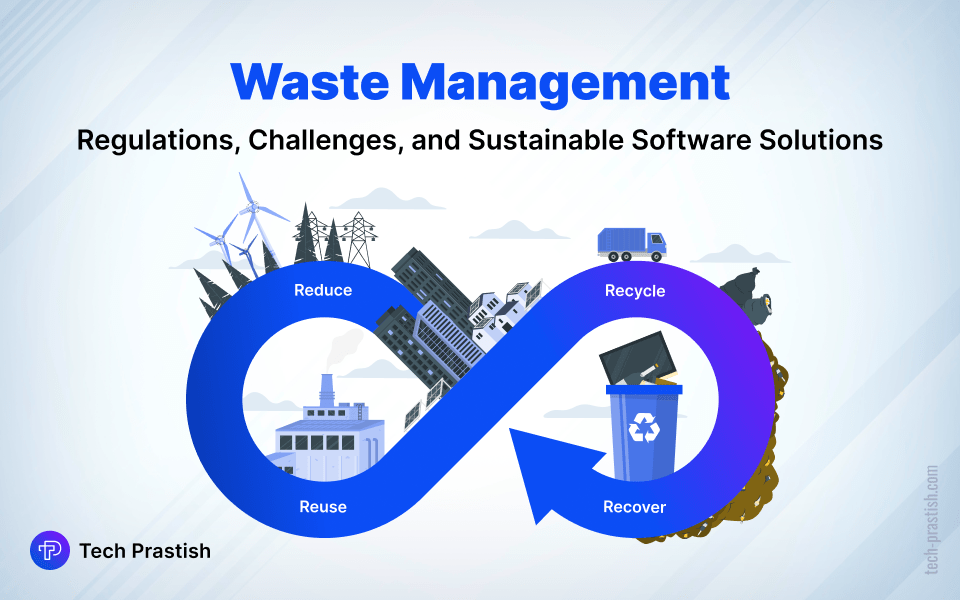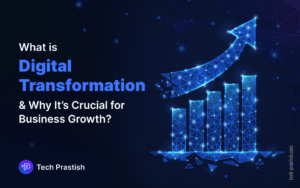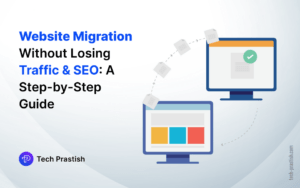
While walking through most of the cities, we notice overflowing trash bins and recyclables scattered on the sidewalks, which are impossible to ignore. Millions of tons of waste are produced daily, clogging landfills, polluting waterways, and fueling the environmental crisis. The outdated reliance on landfills and incineration is no longer sustainable, and the consequences like pollution, climate change, and resource depletion are very evident.
One afternoon, as we discussed this issue, we concluded that something needs to change, but what? Waste management is no longer just about collecting trash—it’s about transforming the entire system. The current approach, with inefficient truck routes, failed recycling, and overflowing landfills, demands smarter, more efficient solutions.
As concerned citizens, we know relying on traditional systems isn’t enough. We need a smarter, sustainable approach to address the complexity of waste management. The answer lies in innovation, particularly in technology that drives sustainable practices. The question is no longer whether we can adapt, but how quickly we can implement the solutions to reverse the damage we’ve caused.
This is where we discovered waste management software solutions, which can optimize collection routes, enhance recycling efforts, and encourage more sustainable resident behaviors.
Sustainable Waste Management Software Solutions: How Would That Work?
We can start by integrating an advanced waste collection system that tracks real-time data on waste generation and optimizes routes. But what about waste recycling? Smart waste sorting software can track waste streams, detect contamination, and guide residents on proper sorting. Mobile apps can provide real-time feedback, improving recycling efficiency and engaging the community.
To ensure compliance with recycling laws, these technologies can monitor waste management practices in real time, track violations, and support enforcement. This makes it easier to meet sustainability goals.
Waste management software solutions improve efficiency, ensure compliance, and foster community engagement. By adopting them, we can create a circular economy—reducing waste, reusing materials, and recycling everything possible. With the right technology, waste becomes a resource, not just something to discard.
The Pillars of Effective Waste Management
Modern waste management systems focus on four core principles: Unlike past approaches centered on disposal (landfills and incineration), today’s goal is to reduce waste generation, promote material reuse, improve recycling rates, and recover valuable resources. These practices help minimize waste volume, conserve resources, and protect the environment. Sustainable software solutions play a key role in this shift.
One of the main advancements in the waste management industry is adopting integrated software solutions. These systems use real-time data to determine the most efficient paths for garbage trucks by minimizing vehicle movement while ensuring all waste is collected.
Beyond collection, sustainable technology also helps to optimize waste sorting. These systems track waste streams and ensure compliance with waste management and recycling guidelines, detect contamination, and reduce recyclable material lost to landfills. Software integrated with sensors can monitor composting and divert organic waste from landfills to agriculture efficiently.
Additionally, mobile apps and digital platforms engage the public, offering real-time tracking, user opinion, and tips for better recycling. This boosts awareness and encourages sustainable practices.
The Regulatory Backbone of Waste Management
Governments worldwide recognize the need for strong waste management regulations. In the U.S., the Resource Conservation and Recovery Act (RCRA) sets standards for waste handling and promotes recycling. Countries globally have adopted similar frameworks to reduce waste, prevent environmental harm, and improve resource recovery.
For businesses and municipalities, compliance is crucial, but enforcement is challenging. The rise of digital technologies has made it easier for governments to monitor waste management practices in real time. Data-driven insights help track waste streams, detect violations, and ensure responsible disposal, leading to better enforcement, informed decision-making, and reduced risks to health and the environment.
Waste Stream Management: A Global Approach
Managing waste on a global scale is complex, with different types of waste requiring specialized handling. Waste is broadly categorized into five streams:
- Municipal Solid Waste (MSW)
- Commercial and Industrial Waste
- Construction and Demolition Waste
- Liquid Waste
- Hazardous Waste
Each stream presents unique disposal and recycling challenges. Hazardous waste needs specialized treatment, while organic waste can be composted or repurposed. The vast scale of waste management makes it challenging to handle each type properly. Sustainable software solutions help by tracking waste streams in real-time, enabling better sorting, management, and recycling, and recovering valuable resources while minimizing environmental impact.
The Challenges in Traditional Waste Management
We learned that traditional waste management faced several significant challenges, many of which were rooted in outdated infrastructure and inefficient practices. These challenges included:
- Inefficient Collection Routes: Waste collection routes are often inefficient, leading to higher fuel consumption and increased carbon footprints.
- Waste Sorting and Contamination: Improper sorting at the source leads to contaminated recycling streams, making it harder to recover materials.
- Public Awareness: A significant portion of the population lacks proper knowledge on waste sorting and recycling.
- Infrastructure Limitations: Inadequate recycling facilities make it difficult to process waste sustainably.
- Economic Challenges: Rising costs and limited landfill space, particularly in urban areas, are escalating the economic burden of waste management.
Moving Beyond Conventional Waste Management System
To address these challenges, we must move beyond traditional methods and adopt innovative, sustainable waste management solutions. Data-driven technologies like advanced sorting systems, route optimization software, and integrated recycling innovations can make waste management more efficient and eco-friendly.
Transforming Waste Management with Sustainable Technology
The waste management industry is undergoing a global shift. Traditional methods are no longer sufficient to address today’s waste crisis, requiring a more strategic approach that embraces technology, innovation, and sustainability.
Sustainable software solutions, like advanced waste collection and sorting systems, are transforming the industry. These technologies use real-time data to optimize routes, reduce carbon emissions, and improve recycling. Waste management software solutions track waste streams, ensure compliance with regulations, and provide insights to enhance efficiency.
Moreover, community engagement has become a crucial part of this transformation. Mobile apps and digital platforms equip residents with the tools and knowledge to reduce, reuse, and recycle, encouraging active participation in sustainability efforts.
The Role of Sustainable Software Solutions
Sustainable software solutions have become crucial in addressing waste management challenges. These tools provide real-time data on waste generation, collection patterns, and recycling rates, enabling municipalities to optimize routes, track waste streams, and ensure compliance with waste management and recycling guidelines.
Key features of sustainable software solutions include:
- Data-Driven Insights: Analyze waste patterns to identify inefficiencies and optimize strategies.
- Route Optimization: Using algorithms to track routes, reduces fuel consumption and carbon emissions.
- Waste Stream Tracking: Monitoring waste streams, detecting contamination, and ensuring proper recycling.
- Community Engagement: Apps and platforms raise awareness and promote sustainable behaviors.
- Performance Monitoring: Generating reports for continuous improvement.
These features help businesses and governments improve efficiency, reduce environmental impact, and foster positive community behavior.
A Global Approach to Waste Management
Governments and businesses worldwide are adopting digital solutions to address the growing waste crisis. In the U.S., regulations like the Resource Conservation and Recovery Act (RCRA) set waste management standards, and digital technologies now make it easier to monitor compliance, track waste streams, and minimize environmental impact.
These technologies enhance operational efficiency while reducing the environmental footprint. Cities are cutting waste and promoting sustainability by optimizing collection routes, minimizing recycling contamination, and engaging the public in responsible practices.
Moving Toward a Circular Economy
In the shift to a circular economy, technology plays a pivotal role in transforming waste into a resource. By reducing, reusing, recycling, and recovering materials, waste becomes a valuable input for new processes. Advanced software solutions help businesses, governments, and communities move toward a sustainable future, minimizing waste and continually reusing resources.
Creating an effective waste management system requires a comprehensive approach, including waste audits, advanced collection software, community engagement, and sustainable policies. Tech Prastish Software Solutions can help you develop scalable, innovative, and customized waste management software solutions to deal with the waste crisis in your preferred region.
Thanks to technological innovation, sustainable waste management is no longer a lofty goal but an achievable reality. As we adopt these waste management software solutions, we move closer to a cleaner, greener, and more sustainable future. The road ahead may be long, but it’s one worth taking for the planet and for the generations to come. Contact us today, to take a constructive step toward effective waste management!





